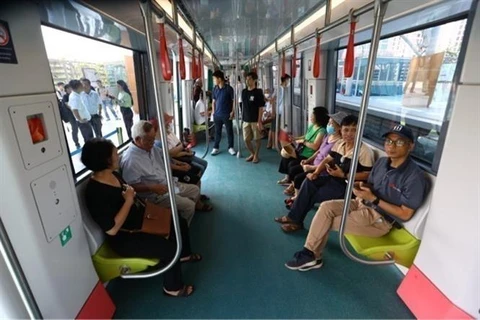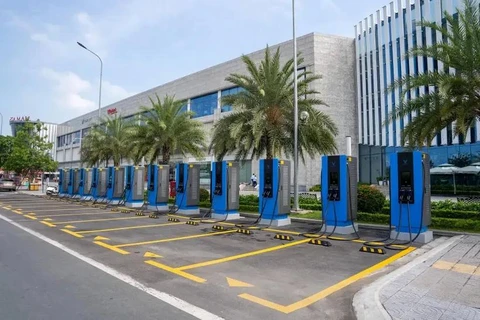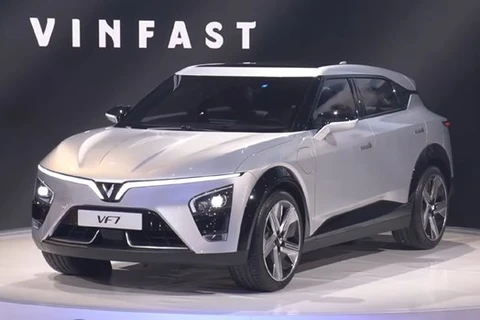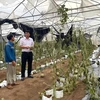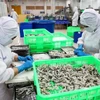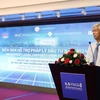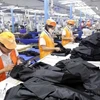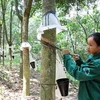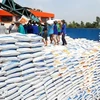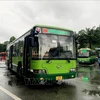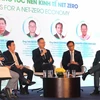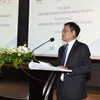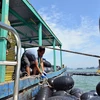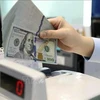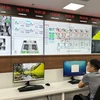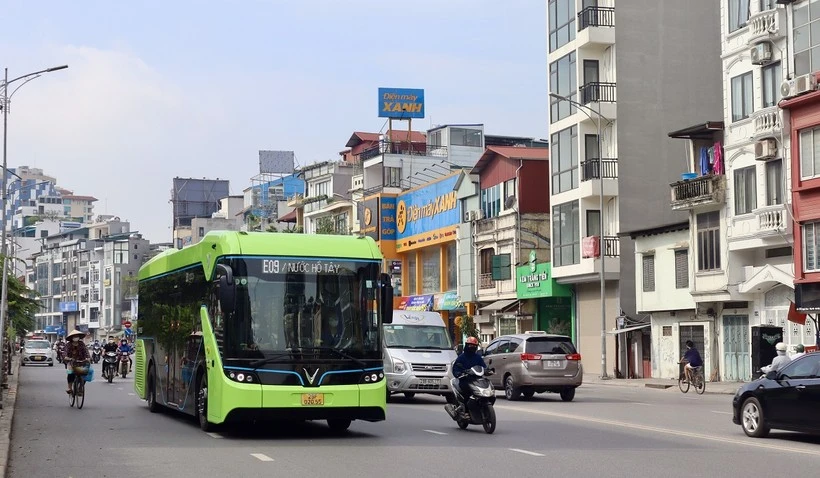
Hanoi (VNA) - Vietnam is actively pursuing green transport as a foundational step toward building a green economy.
International organisations have pledged their support, not only financially but also by sharing practical experience in transitioning to green vehicles and energy within the transport sector.
During the forum, "Developing Green Transport: Challenges and Solutions for Attracting Investment" held on August 21, Minister of Transport Nguyen Van Thang emphasised the importance of Vietnam’s commitments at COP 26.
He highlighted the government's approval of a comprehensive action plan on July 2, 2022, through Decision 876, aimed at transitioning to green energy, reducing carbon and methane emissions in the transport sector, and achieving net-zero greenhouse gas emissions by 2050.
The action plan outlines specific solutions across five key transport sectors, including the development of urban rail systems, high-speed rail, electrified national railways, green ports, and a roadmap for transitioning vehicles to electric and green energy.
There have been early successes, including the establishment of urban rail lines, the deployment of hundreds of electric buses, and the operation of tens of thousands of electric cars and motorcycles.
Minister Thang acknowledged that these achievements are modest compared to the ambitious targets set. He called for more significant efforts to mobilise resources and implement policies that encourage public and private sector participation in green transport initiatives.
Stressing that developing green transport is crucial for building a green economy, the minister noted the need for substantial international support, both in financial terms and in the form of expertise for policy development and implementation, which should be adapted to the specific context in Vietnam and in each sector.
Former Deputy Minister of Transport Nguyen Ngoc Dong said that there is great demand for transport development, but the plan for infrastructure investment has just mentioned charging stations, neglecting infrastructure for ports, airports, and railways.
Dong pointed out the significant challenge of mobilising resources to meet Vietnam's Net Zero commitments. He questioned whether current policies and strategies for attracting investment need to be reassessed and how legal frameworks should be adjusted to better attract resources.
Emphasising the importance of state funding as a catalyst for infrastructure development, Dong discussed the possibility of unlocking international resources. While international partners have made commitments, Vietnam must effectively access and utilise these resources by meeting specific conditions.
He also stressed the importance of involving the private sector in areas where they have strengths, such as vehicle and energy transition, to combine efforts and achieve the overall objectives.
The successful mobilisation of resources is crucial, but the organisation and execution of projects are equally important to effectively manage large capital flows and ensure synchronisation across sectors toward the Net Zero Target, Dong emphasised.
Professor Le Anh Tuan, Chairman of the Council of Hanoi University of Science and Technology, presented three scenarios for reducing greenhouse gas emissions in transport by 2050, focusing on achieving net-zero emissions. These scenarios include business-as-usual emissions, national efforts using domestic resources, and achieving net-zero emissions with international support.
Tuan proposed a national electric vehicle transition programme divided into three phases: the initiation phase (2024-2030), rapid growth (2030-2040), and stable growth (2040-2050). Each phase would focus on specific strategies, such as developing and refining policies to promote electric vehicle adoption, raising public awareness, enhancing transport and electric grid infrastructure, strengthening international cooperation and technology transfer, and mobilising and allocating investment resources.
During the forum, representatives from international organisations reiterated their commitment to supporting Vietnam in developing green transport.
Chief Representative of the Republic of Korea (RoK) government’s Economic Development Cooperation Fund (EDCF) in Hanoi Jin Saeun noted the RoK's interest in building green transport infrastructure in Vietnam, particularly in rail and road projects.
He confirmed that the RoK and EDCF are committed to increasing their support in the coming years. EDCF has also developed a green index rating system to evaluate its investment projects, ensuring they meet emission thresholds and assess climate change impacts.
Representatives from the Asian Development Bank (ADB) and the World Bank (WB) also pledged their continued investment in green technology in Vietnam, emphasising their crucial role in financing and developing sustainable green transport in the country./.
